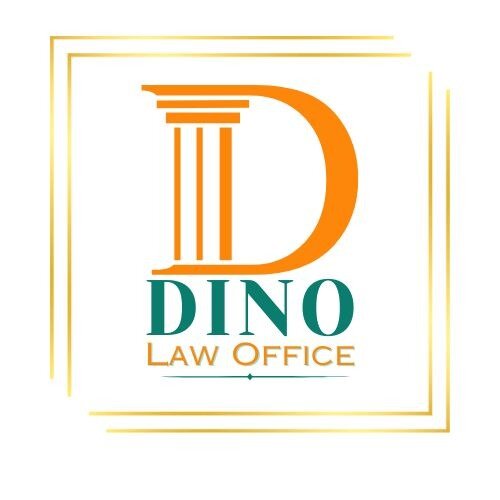Best Telecommunications and Broadcast Lawyers in Philippines
Share your needs with us, get contacted by law firms.
Free. Takes 2 min.
Or refine your search by selecting a city:
List of the best lawyers in Philippines
About Telecommunications and Broadcast Law in Philippines
Telecommunications and broadcast law in the Philippines is a comprehensive legal field that deals with regulating and overseeing telecommunications services, radio, television broadcasting, and internet services in the country. This sector is primarily governed by the National Telecommunications Commission (NTC) and is subject to various laws, regulations, and policies designed to ensure a fair, competitive, and efficient marketplace. The industry is essential not only for daily communication but also for economic growth, social interaction, and information dissemination. In the Philippines, this legal framework ensures that telecommunications and broadcast services are accessible, affordable, and reliable while protecting consumer rights and promoting innovation.
Why You May Need a Lawyer
There are numerous scenarios where individuals and businesses might require legal assistance in the telecommunications and broadcast sector:
- Obtaining licenses and permits for operating telecommunications or broadcasting services.
- Dealing with disputes over signal interference or broadcasting rights.
- Navigating regulatory compliance and ensuring adherence to NTC regulations.
- Handling issues related to intellectual property, such as content distribution and copyright concerns.
- Assisting in mergers and acquisitions within the telecom industry.
- Addressing consumer complaints and service disputes with providers.
Local Laws Overview
The telecommunications and broadcast sector in the Philippines is primarily managed under the Public Telecommunications Policy Act (Republic Act No. 7925) and the Broadcast Regulations under Executive Order No. 546. Key highlights include:
- Licensing and Franchising: Enterprises must obtain proper licensing from the NTC to operate legally within the country.
- Spectrum Allocation: The NTC regulates and allocates frequency spectrums to avoid overlap and interference among broadcasters.
- Content Regulation: Content broadcasted over radio and television must comply with standards set by the Movie and Television Review and Classification Board (MTRCB).
- Consumer Protection: Regulations enforce rules to protect consumers against misleading advertisements and ensure quality service.
- Competition Law: Anti-trust laws ensure that monopolistic practices are prohibited, promoting a competitive market environment.
Frequently Asked Questions
1. What is the NTC, and what does it do?
The National Telecommunications Commission (NTC) is the regulatory body responsible for overseeing and regulating telecommunications and broadcasting services in the Philippines. Its primary function includes licensing, regulation of frequency spectrum, and ensuring compliance with national policies.
2. Do I need a license to operate a radio station?
Yes, operating a radio station in the Philippines requires a license issued by the NTC, ensuring that broadcasting activities adhere to local regulations and frequency allocation requirements.
3. How can I resolve a billing dispute with my telecom provider?
Initially, attempt to resolve the issue directly with your provider. If unresolved, you can file a complaint with the NTC, which has the authority to mediate and investigate service and billing disputes.
4. Are there regulations for online streaming services?
While not as developed as traditional broadcast regulations, online streaming falls under certain content and distribution laws, and providers may be subject to government oversight in terms of licensing and consumer protection.
5. What should I do if my broadcast licensing application is denied by the NTC?
If your application is denied, you have the right to appeal the decision. Legal assistance from experienced practitioners can be invaluable in navigating the appeal process.
6. Can foreign companies own telecom businesses in the Philippines?
As per the Philippine Constitution, foreign ownership in public utilities, including telecommunications, is limited to 40% to ensure national security and control over essential services.
7. What technology standards must be met by telecom providers?
Providers must comply with NTC standards relating to service quality, network rollout, and deployment, which are periodically reviewed to align with technological advancements and international benchmarks.
8. How are frequency spectrums allocated to broadcasters?
The NTC allocates frequency spectrums according to availability, demand, and technical requirements, prioritizing efficient use and minimizing overlap among users.
9. What measures are in place to protect consumers' personal data?
Consumer data protection is governed by the Data Privacy Act, which mandates that telecommunications and broadcasting companies implement robust data protection measures.
10. Is advertising regulated on broadcast media?
Yes, advertising content is subject to review and approval by multiple agencies, including the MTRCB and the Ad Standards Council (ASC), ensuring compliance with ethical and cultural standards.
Additional Resources
For further assistance and information, consider reaching out to the following organizations:
- National Telecommunications Commission (NTC): The primary regulatory body for all telecommunications and broadcasting matters.
- Movie and Television Review and Classification Board (MTRCB): Responsible for reviewing and classifying television and radio content.
- Philippine Competition Commission (PCC): Ensures competitive practices in the market and addresses anti-trust issues.
- Data Privacy Commission: Provides guidelines and support on data privacy concerns in telecommunications.
- Local Bar Associations: Many bar associations offer networking and referral services for finding specialized legal counsel in telecommunications and broadcasting law.
Next Steps
If you require legal assistance in telecommunications and broadcast law in the Philippines, consider the following steps:
- Identify the specific legal issue or requirement you have in the telecommunications and broadcast sector.
- Consult with a lawyer specializing in communications law to get tailored advice and guidance.
- Gather all relevant documentation, such as contracts, licenses, correspondence, and regulatory notices, for your lawyer’s review.
- Consider alternative dispute resolution methods where possible to avoid lengthy litigation.
- Remain informed about your rights and responsibilities under current telecommunications laws and regulations.
Lawzana helps you find the best lawyers and law firms in Philippines through a curated and pre-screened list of qualified legal professionals. Our platform offers rankings and detailed profiles of attorneys and law firms, allowing you to compare based on practice areas, including Telecommunications and Broadcast, experience, and client feedback.
Each profile includes a description of the firm's areas of practice, client reviews, team members and partners, year of establishment, spoken languages, office locations, contact information, social media presence, and any published articles or resources. Most firms on our platform speak English and are experienced in both local and international legal matters.
Get a quote from top-rated law firms in Philippines — quickly, securely, and without unnecessary hassle.
Disclaimer:
The information provided on this page is for general informational purposes only and does not constitute legal advice. While we strive to ensure the accuracy and relevance of the content, legal information may change over time, and interpretations of the law can vary. You should always consult with a qualified legal professional for advice specific to your situation.
We disclaim all liability for actions taken or not taken based on the content of this page. If you believe any information is incorrect or outdated, please contact us, and we will review and update it where appropriate.
Browse telecommunications and broadcast law firms by city in Philippines
Refine your search by selecting a city.
















